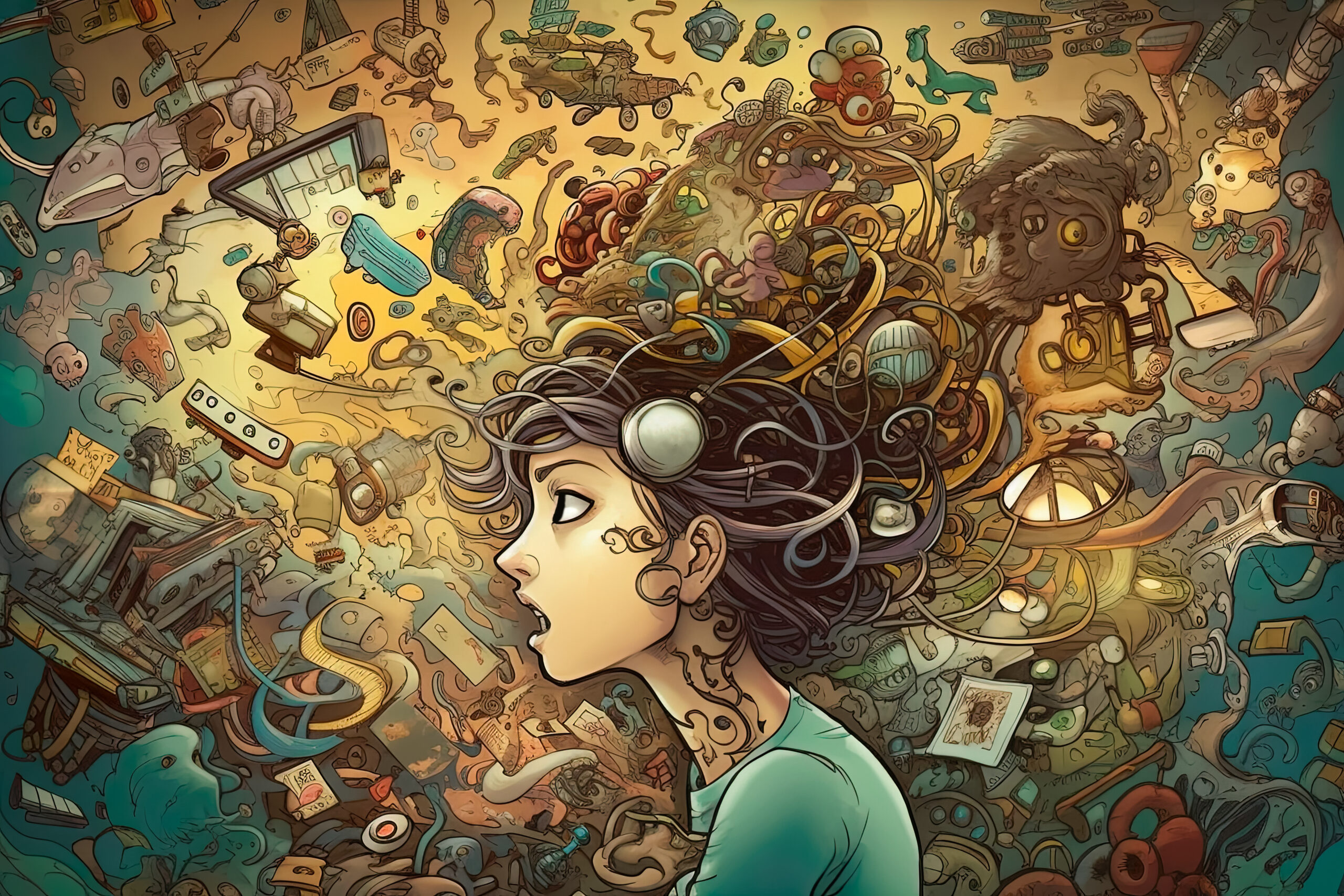Counselling
- How do you work as a counsellor?
- What happens in a counselling session?
- How many sessions will I need?
- What life-events do you work with?
- Will counselling work for mental health conditions?
- Do you work with trauma?
- What is the medical model versus the bio-psycho-social model of mental health?
- Could I get treatment for my mental health if I go to the NHS?
- Can you work with neurodiversity, such as Autism and ADHD?
How do you work as a counsellor?

In counselling, clients can explore their sense of identity, their past, their relationships and/or life-events that are causing distress.
I support clients through distressing and difficult times and help them find themselves again when they feel lost or broken.
As an integrative counsellor, I use multiple approaches to help you through challenging life-circumstances and overcome common mental health conditions.
My underpinning is person-centred counselling, which means that my main focus is hearing you, validating your feelings, and being honest and authentic with you.
I additionally draw on additional approaches and work flexibly according to the needs of each unique client. I might help you re-frame your issues and find new ways to tackle problems. You can find out more about the models I draw upon by clicking here.
Therapy can be long-term, brief (6 sessions), or even single-session. I also offer Rewind therapy to treat flashbacks. Find out more about the duration of therapy by clicking here.
Counselling can be very effective for working through current life challenges, exploring things that happened in the past, working on relationships, or finding your sense of identity and self-worth.
When something difficult happens in your life, it can expose your vulnerabilities. Counselling can offer a space to explore the distressing feelings and make healthy decisions.
Sometimes, things that happened in the past may be contributing to your current difficulties, in which case, we might explore that. The past doesn’t always need to be examined, but sometimes it can be very helpful to do so.
If there is conflict or friction in your relationships with others, we might explore why that is. Relationships include personal relationships such as with your partner, children, parents and friends; and can also include work relationships such as colleagues, managers and subordinates.
Some people come to therapy because they are struggling with their sense of identity and do not feel they know who they are authentically. Or maybe they do know, but feel that they cannot show their authentic self to loved ones and/or society. This often comes alongside low self-worth and self-esteem issues.
What happens in a counselling session?

Mainly, you talk it out.
My job is make it a safe space for you to share and to help you make sense if your thoughts and feelings.
Counselling is usually a 50 minute session weekly. We can reduce to fortnightly if you feel well enough to handle the longer gap between sessions.
Arranging sessions
We’ll need a ‘chemistry chat’ first before agreeing to start sessions. This is free-of-charge and there’s no obligation to work with me. Click here to book.
I’ll be interested in what ‘problem’ you are currently experiencing, and we’ll discuss our mutual availability to see if it matches.
We’ll discuss the times and dates you are available to meet.
I’ll send you a link to complete a form. This gives me basic information about you such as your contact detail and emergency contact. It includes questionnaires designed to assess your current state of mental health. There is also a contract to explain my terms and conditions.
Once that’s all agreed, you’ll get an email to confirm the meeting details.
The first session
I’ll either call you on the phone or you join via the meeting link as agreed.
I will conduct a counselling assessment. This is designed to manage expectations and decide on the goal for counselling. We will likely discuss things such as, what brings you to counselling, relevant background, and your family situation. We’ll also discuss expectations for the duration of counselling, whether it will be brief or longer-term.
Subsequent sessions
The sessions are essentially led by you, though I might remind you of your stated goal if it feels like we’re drifting off the topic you wanted to discuss. You can change the goal at any time. Sometimes the goal is simply to talk it out and explore the issues – that’s a perfectly valid use of counselling time.
Endings
You can end anytime you like. If you seem to be doing well, even I might bring up the idea. Its often nice to have a final session to reflect on progress made.
Ideally, you won’t be in counselling forever. You’ll develop your ability to find guidance from within yourself.
How many sessions will I need?
Therapy can be long-term, brief (6 sessions), or even single-session. I also offer Rewind therapy to treat flashbacks, and that usually only takes two sessions.
Some research shows diminishing returns from a cost-benefit perspective. One session is generally better than zero; two is better than one; twenty is better than nineteen, and so on. However, even though more is better, each session adds a little less benefit than the last one did.
This makes sense to me. Each time you are growing and learning, and one day, that growth will be so embedded that you will no longer benefit from the sessions.
Funding is often limited. For organisations like the NHS and the charity sector, where every penny counts, they want to provide a service that gives people benefit for the least amount of cost. A lot of time and effort goes into figuring out where the tipping points are. Six or eight sessions are common numbers for subsidised or ‘free’ services.
When working with me, you are not limited as the funding is your own. That said, I still care and want to keep your costs down, but its more important to me that you don’t feel rushed, that you feel ready to end and that you’ve completed the work you need to do.
Most of my clients work with me between 6 months to a year, though some stay longer. This is because we take our time to work through the issues and we are talking about embedding change that will last a lifetime. I like to talk to you about duration at the outset. I am perfectly capable of working to a brief model if that is required for your budget, but it requires a different approach.
Click on the lists to see the pros and cons of different durations.
Brief (limited number of sessions – such as 6)
This is the most common offer from charities and the NHS where funding is a big concern.
Six or eight sessions are common numbers of subsidised or ‘free’ services.
Its helpful to stay focussed on a specific problem and a specific goal of therapy.
The counsellor may offer a framework designed to speed up learning.
Long-term
A true person-centred approach can take a long-time. In the long-run, that makes it more expensive.
The client does not feel rushed and they are not reduced to a set of symptoms to be ‘treated’. Instead, the client is given all the time and space they need to heal and grow.
Integrative techniques speed up the process. However, they are introduced only when the therapist thinks the timing is right for the client to be receptive to them and benefit fully.
The therapeutic relationship becomes very deep, and the client is more likely to feel trust in their therapist due to the length of time sharing and processing together.
This is my preferred way to work.
Single session
Single session therapy is a great way to explore specific dilemmas.
It purposefully works at a ‘lighter’ relational depth and is very solution-focussed. It can also serve as a place to be heard and validated if that is missing in your personal relationships.
The client is realistic about the limitations of what can be achieved within a 50 minute session. It is a great place to talk about your immediate problems without receiving unsolicited advice from well-meaning family or friends.
My therapeutic-assessments are also single-session, but they more generally are the first step in a longer term plan.
Rewind (usually two-sessions)
Rewind is a specific therapy for treating PTSD flashbacks and usually takes two sessions, though we may add a couple more if required. Find out more here.
What life-events do you work with?

We all experience challenging life events and these are often stressful.
Life has stages, and each life-stage can bring dilemmas and challenges.
Common life-events that I work with include parenting challenges, separation and divorce, and workplace stress.
Do you work with trauma?
Yes. Victims of trauma may need support to process and recover from the experience, or they may want to reduce flashbacks.
There are two main categories of trauma commonly referred to as Big “T” Trauma and “little-t” trauma.
Big “T” trauma follows extremely threatening incidents such as those resulting in serious injury, sexual violence or are of a life-threatening experience. Evens like these will trigger a major stress response in the body and it is normal to feel shock after the event. Some people are able to process what happened and get on with their lives, but others feel it deeply and it can affect them for a long time. Sometimes it may also result in Post-traumatic stress disorder (PTSD).
Little “t” trauma is caused by ‘normal’ everyday stress events, particularly if the stress persists for a long time. Little “t” traumas include problems at school, rejection by peers, loss of significant relationships, breakups and bullying. The events are less life-threatening in nature, but are still distressing. Little “t” trauma can result in long-term issues for the person, resulting in loss of a sense of identity, problems regulating emotions and in ability to form and maintain relationships with others.
I offer trauma-informed counselling to explore and navigate the impact of historical trauma in the here-and-now. I also offer a stand-alone treatment for relief from flashbacks – see Rewind for more information.
Will counselling work for mental health conditions?

What is the medical model versus the bio-psycho-social model of mental health?
The medical model offers diagnosis for a set of symptoms, and aims to treat those symptoms. It prescribes specific approaches to ‘treat’ the symptoms and provide relief.
The bio-psycho-social model understands Mental Health problems to be a result of the interaction between a person and their environment. This is the model that I ascribe to.
Could I get treatment for my mental health if I go to the NHS?
Official diagnosis of ‘disorders’ can only be done by a medical professional, such as your GP, or for more serious conditions, a psychiatrist. (Psychiatry is the mental health arm of the medical profession – Psychiatrists are specialist doctors).
If you’re prepared to wait, there are treatments for many mental health disorders available on the NHS (offered in a cost-effective format and with a waitlist of course). Follow the link to go to the NHS pages for mental health conditions.
Common mental health disorders are the ones that happen to a lot of people across the population. They include anxiety disorder, depressive disorder and post-traumatic-stress disorder (PTSD).
More serious mental-health disorders include bi-polar and EUPD. It can be very hard to obtain access to treatment for these conditions, even via the NHS, but your GP is the first point of call.
Can counselling help if I have a mental health condition?
I believe so. Yes. But I look at it differently. I’m not ‘treating’ your ‘disorder’, I consider you a whole person rather than a set of symptoms. I’m working with you as a unique individual to help you process your thoughts and feelings.
The NHS offers counselling to ‘treat’ some common mental health disorders, but only in the form of approved, more structured modalities such as Counselling-for-Depression and Interpersonal Therapy (IPT).
The counselling I offer privately is not one of the NHS approved modalities, it is a more integrative and flexible approach to counselling. When counsellors are given freedom to be flexible in their approaches, it become harder to measure the effectiveness of the approach, because its hard to tell what the counsellor did exactly to help, and hard to train new counsellors to replicate it. This is why the NHS prefer the structured modalities.
There is good research that shows the single most important factor in efficacy of treatment is the relationship with your counsellor. So ultimately, pick one who you trust.
Counselling is not recommended to ‘treat’ more serious mental health conditions such as bi-polar, BPD and EUPD, though people with these conditions face life-challenges just like everybody else. Counselling can be helpful to navigate the life-challenges. It won’t ‘treat’ the condition, but it can still help you navigate life.
It’s also worth holding in mind that the medical model itself is influenced by our cultural environment. We need to be wary of the possibility that people may, even today, be mis-diagnosed. If we look through a different lens, sometimes the symptoms of a ‘disorder’ could easily be explained as a normal and rational response to difficult life-events and past-trauma.
Can you work with neurodiversity, such as autism and ADHD?
Yes. Neuro-spicy people face life-challenges just like everybody else, and in fact, can face a lot more.
There can be a lot of work in counselling to decide whether to pursue a diagnosis, and how to come to terms with finding out that you or a family member is neuro-spicy.
Sometimes people get a formal diagnosis, either through the NHS or privately, and sometimes a person has a strong feeling for themself that they suspect they are neuro-diverse without a formal diagnosis. NHS waiting lists are long and private diagnosis is expensive, so I am not going to insist that you have a formal diagnosis before I talk to you about challenges you experience. Your own perspective on your own lived experience is our starting position.
Neuro-diverse people and their families face extra life-challenges simply due to existing in this neuro-typical world. Relationships can become even more complex when different neuro-types interact. All of these challenges can be explored within counselling, with or with a formal diagnosis.
Note that I cannot diagnose neuro-diversity – only a specialist medical professional can do that. My knowledge of neuro-diversity comes from continuous professional development and lived experience.